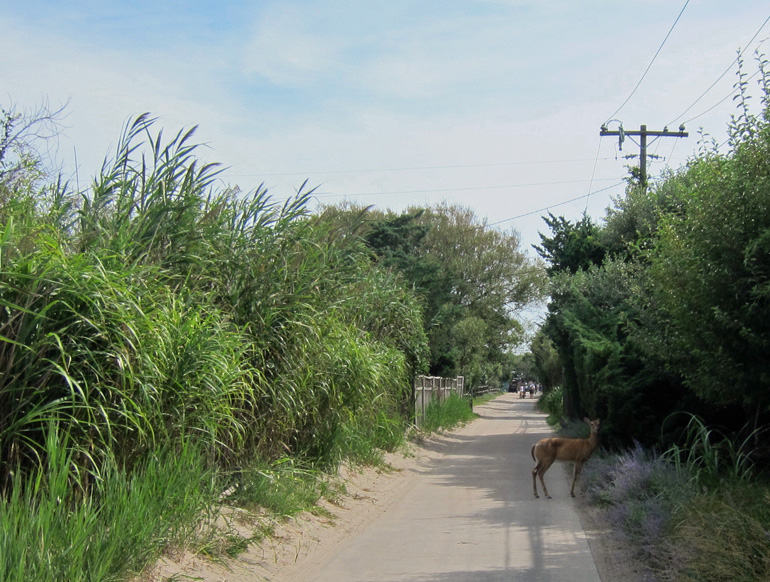Gotham Diary:
Substitute
22 August 2012
Last night, Will was in no mood for dinner. Well, like anyone his age, he’s never in the mood for dinner, but last night he was in no mood for Megan’s dinner. He wanted his mom to leave the table and watch Finding Nemo with him. (I worry, unreasonably, that Bruce the Shark is becoming a role model.) There was a moment of whimper and negotiation. Will agreed to wait until Megan finished her dinner. He pretended to graze on chocolate-covered raisins, but he was watching her dining progress like a hawk. When he decided that she had had enough to eat, he got down from his chair and walked into the kitchen, where we heard him rooting around among some pots on a shelf. Presently he reappeared, bearing an enameled cast iron pot that, while quite small, was heavy for him. It was the sort of vessel that I think of as European, probably because I never saw one as a child. With a lid, and a mildly conical cylinder for its handle, the pot is more decorative than useful; it says “casserole” and comfort, but you had better not believe it. This appeal may have been why Will singled it out. Having placed the pot on the table, he immediately slipped his hand into his mother’s and prepared to lead her away. “Thank you, Will,” I said. “Now that you’ve brought me this lovely pot, I won’t miss Mommy when you make her leave me all alone. This is the perfect substitute.” Megan couldn’t help laughing. “That may be the thinking,” she allowed.
***
On the beach yesterday, I thought about how much time I used to waste doing what other people said was interesting. This was largely a matter of pursuing la vie de Bohème, and of course it was in no small part a reaction to my proper bourgeois upbringing. (I may even have sensed that it was a time-honored reaction, taken, for hundreds of years, by men and women were brought up as I was but who also liked to read and write.) I indulged a lot of self-consciously louche behavior and endured uncountable hangovers. I sat up late because that was what you were supposed to do. (Also, I had a sleeping problem; but staying up late was not any kind of solution.) I was not what I would now call attractive. I did meet some lovely people, but the circumstances were often too embarrassing (in retrospect) to overlook. Good old days? I don’t think so.
On the plus side, my rebelliousness lead me to learn how to cook. By and large, though, rebellion took me nowhere very interesting. I hoped that taking drugs would make my casual lifestyle interesting, and by that I mean that I actually hoped for enlightenment from drugs, which was probably a belief to which only an early viewer of Walt Disney’s Wonderful World of Color could have subscribed.
I was serious about my job at the radio station, although that was a form of rebellion in itself, because the pay was so low. I did learn that, whatever the genuine economic explanations for artistic impecuniousness might be, here’s one that isn’t:Â it is roaringly philistine to assert that artists are only paying the price of doing something that they love. There is no reason why doing something that you love ought to entail financial nonentity, and I’ve known plenty of business people over the years who have been handsomely remunerated for doing what they love. IÂ was doing work, at the radio station, that ought to have allowed me to support a family, and not on a shoestring.
Rebellion can take a long time to undo. In law school, I tended to concentrate on the massive structural inequities of American jurisprudence. I didn’t get worked up about them. (I was still rebelling from the idea of getting worked up about anything.) But I learned to see how abstract notions of “democracy” can be made to support a society that is more unequal than its human constituents. (I may earn more than you do because I’m smarter than you are, but I’m not four hundred times smarter than you are.) I became convinced that the phrase about “adding to the whole number of free persons” “three fifths of all other persons,” in Article I, Section 2 of the United States Constitution is the Founders’ original sin — an open wound that has not yet healed, and that may never heal.
I am still pretty rebellious, but only where it matters: reading and writing.   Â

